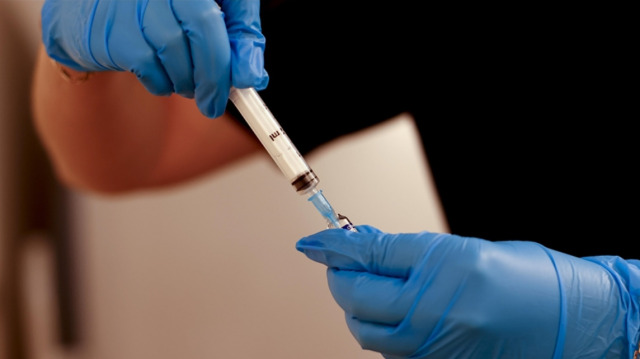
R21 vaccine expected to become available by middle of 2024, says head of UN's public health agency
The World Health Organization (WHO) on Monday recommended a second vaccine against malaria to prevent risks for children.
Two years after recommending the first vaccine RTS,S vaccine, Director-General Tedros Adhanom Ghebreyesus told a press conference in Geneva: "Today, it gives me great pleasure to announce that WHO is recommending a second vaccine, called R21/Matrix-M, to prevent malaria in children at risk of the disease."
Tedros said trials showed the vaccine to be "safe," and safety monitoring will continue as the vaccine is rolled out. He added that the cost of vaccine will be between $2-4 a dose.
The recommendation is based on advice from two expert groups, including the Strategic Advisory Group of Experts on Immunization (SAGE) and the Malaria Policy Advisory Group, he said, noting that the R21 vaccine showed in trials that in areas with seasonal transmission, "it reduced symptomatic cases of malaria by 75% in the 12 months following a three-dose series of the vaccine."
He added that a fourth dose, given a year after the third, was shown to maintain protection.
"This efficacy is similar to the RTS,S vaccine when given seasonally," he said.
Although malaria deaths have fallen by more than half since 2000 and the disease has been eliminated from many parts of the world, he said, "globally, progress has stalled."
"Nearly half the world’s population remains at risk of malaria," he said as estimated 247 million cases of malaria, and 619,000 deaths have been reported in 2021, while 95% of cases and deaths are in Africa, with most deaths in children under age five.
The RTS,S vaccine will be rolled out in some African countries early 2024, he said, adding the R21 vaccine is expected to become available to countries by the middle of next year.
Tedros said SAGE also reviewed vaccines against dengue and meningitis at its meeting last week.
He also recommended a new vaccine against dengue called Qdenga for children aged six to 16 years living in areas where dengue is a significant public health problem.
For meningitis, a vaccine called Men5CV, which has shown to protect against five species of bacteria that cause the disease, was recommended.

